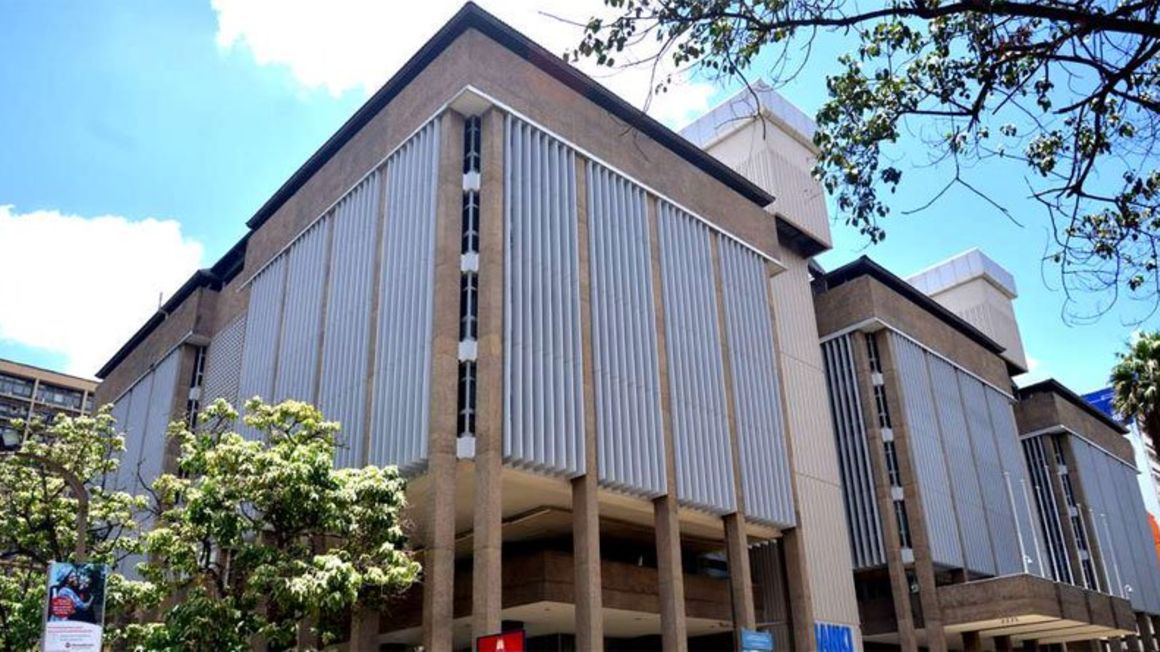
Central Bank of Kenya. FILE PHOTO | NMG
Summary
- The Central Bank of Kenya (CBK) will hold its Monetary Policy Meeting (MPC) tomorrow amid concerns about the rising cost of food that has driven inflation to a 16- month high.
- The prices of key food items have climbed significantly over the past couple of months, adding pressure on cash-starved households that are still reeling from the economic hit of the Covid 19 pandemic.
- Kenya’s inflation rose to a 16-month high in June largely on the back of increased cost of basic foodstuffs and fuel, data by the Kenya National Bureau of Statistics (KNBS) report shows.
The Central Bank of Kenya (CBK) will hold its Monetary Policy Meeting (MPC) tomorrow amid concerns about the rising cost of food that has driven inflation to a 16- month high.
The prices of key food items have climbed significantly over the past couple of months, adding pressure on cash-starved households that are still reeling from the economic hit of the Covid 19 pandemic.
Kenya’s inflation rose to a 16-month high in June largely on the back of increased cost of basic foodstuffs and fuel, data by the Kenya National Bureau of Statistics (KNBS) report shows.
Inflation — a measure of changes in the cost of living year-on-year — climbed to 6.32 percent from 5.87 percent in May, signaling a painful cost pinch on the budgets for households and businesses amid Covid-19 knocks on earnings.
The rise in the indicator for cost of living was the highest since 7.17 percent in February 2020.
This has piled pressure on businesses, which are battling depressed sales, while a considerable chunk of private-sector workers has been slapped with pay cuts as their counterparts in the public sector workers face a pay raise freeze for two years.
At its last bi-monthly meeting on May 26, the inflation-targeting MPC shrugged off heightened global uncertainties to retain its benchmark lending rate at seven percent for the eighth time in a row.
The MPC which observed that the economy was continuing to operate below its potential, shrugged off economic slowdown fears and held its benchmark lending rate at 7.0 percent after the meeting, saying that the measures it had put in place since March had helped mitigate Covid-19’s effect on the economy.
Some analysts say though that while inflationary pressure is likely to be at the forefront of the MPCs thinking, the base rate is unlikely to change, given the need to also stimulate economic growth - a conundrum that complicates the conduct of monetary policy.
"We expect the regulator to show more tolerance to inflation and may join the band-wagon of policymakers making a case for sustained easing, given the transitory nature of the recent pressures. Ultimately, the regulator could leave policy unchanged although there remains scope for further easing," said NCBA Research in a pre-MPC note.


No comments:
Post a Comment